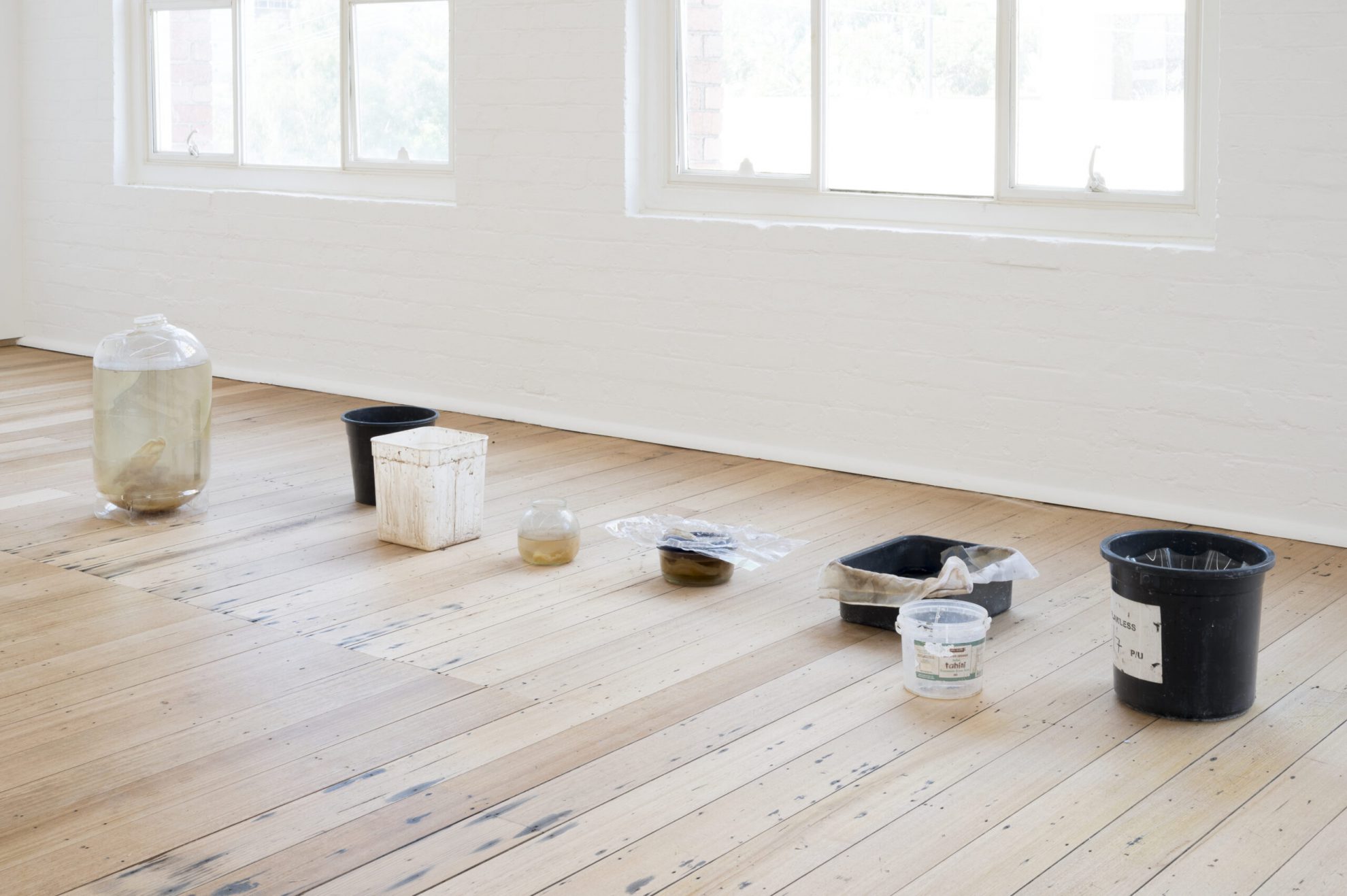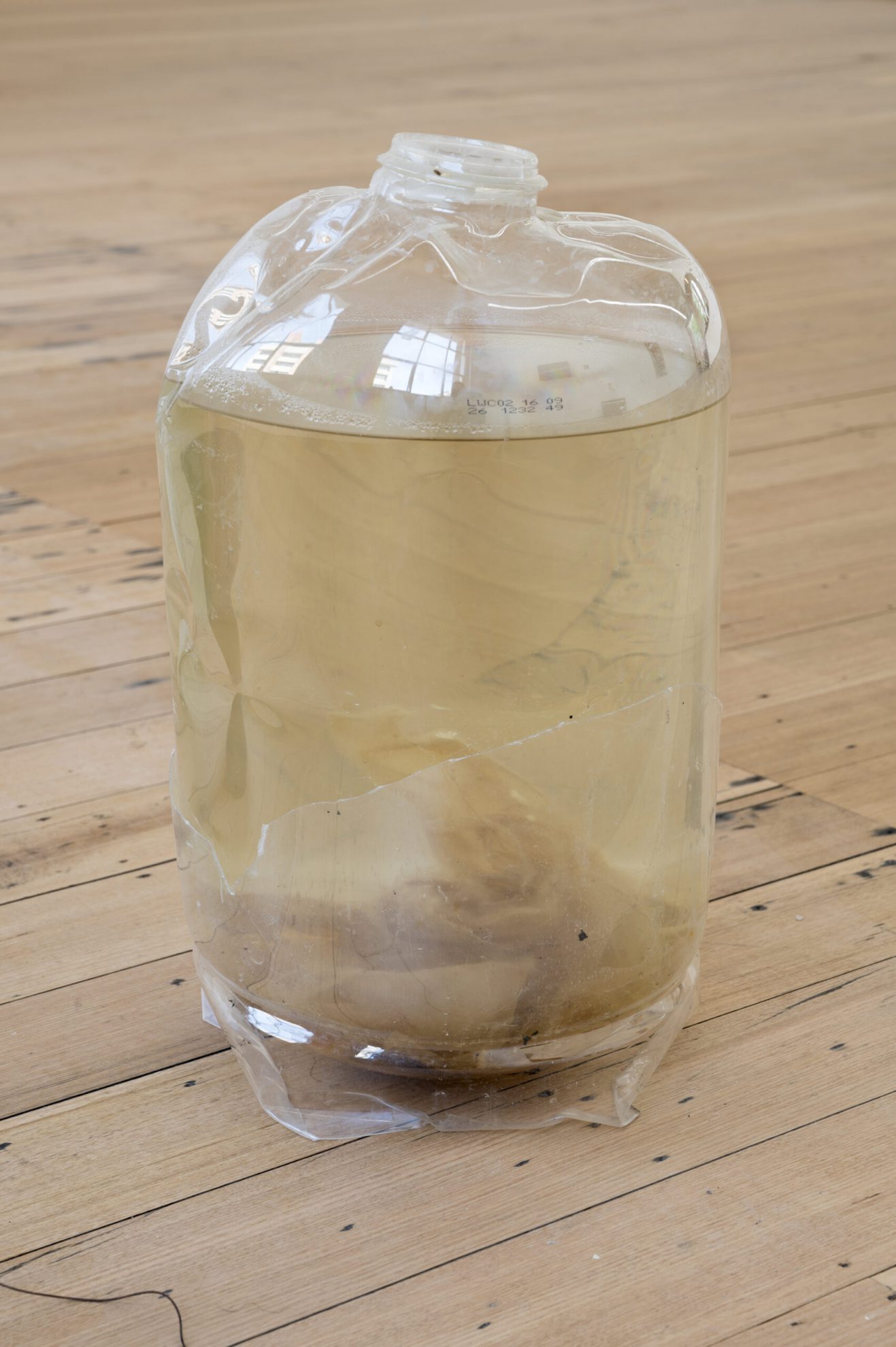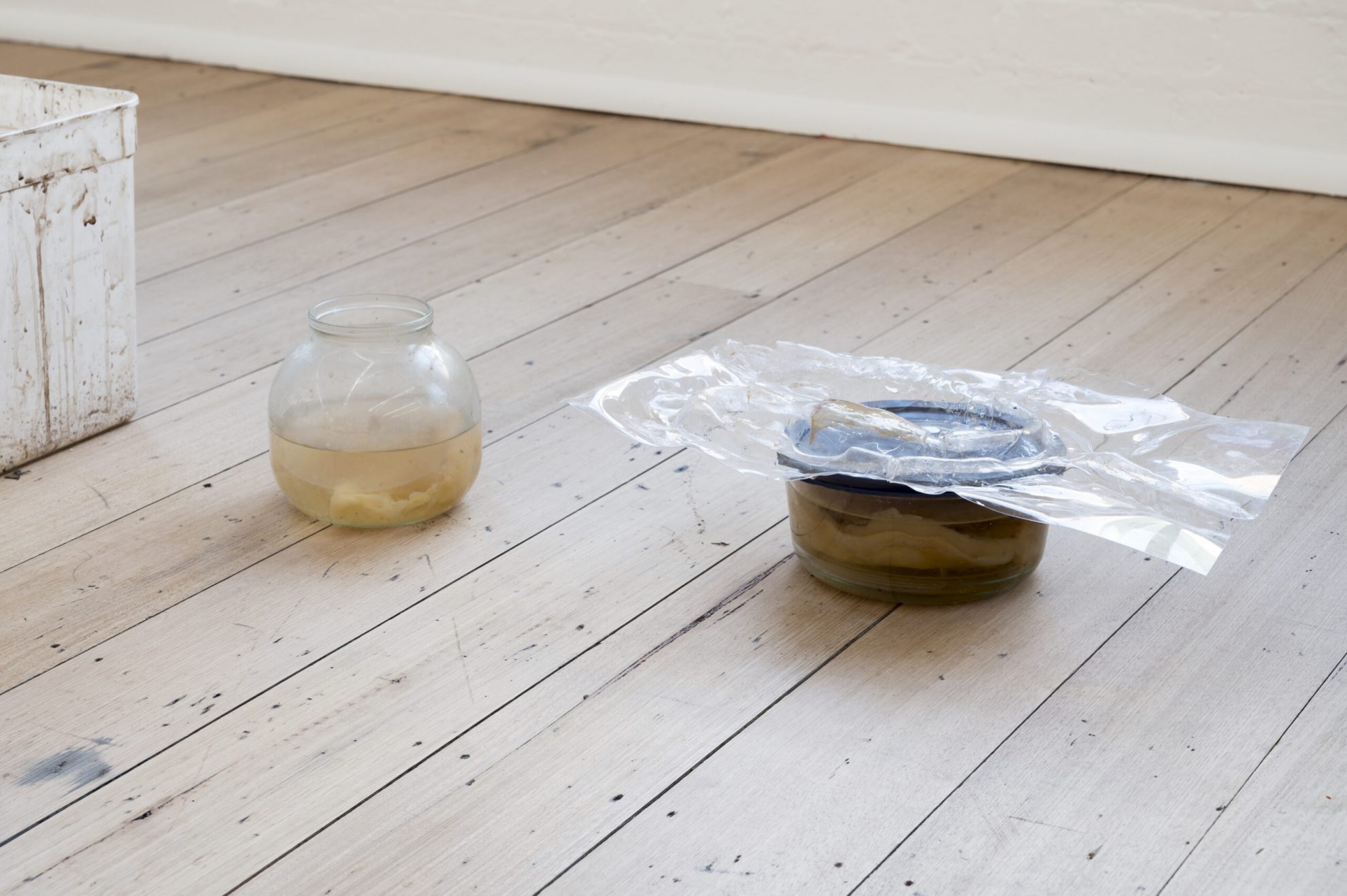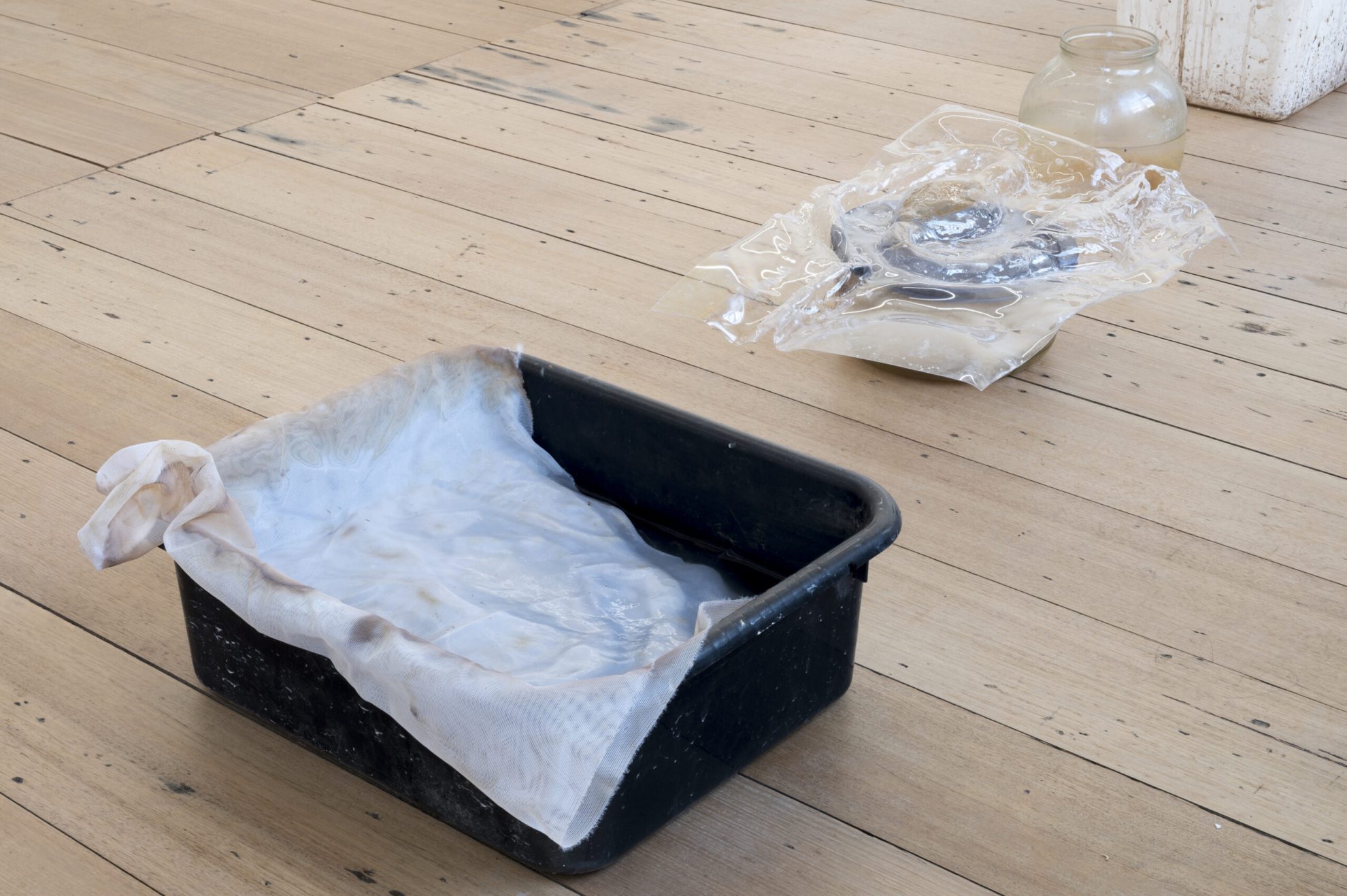Isadora Vaughan’s work proceeds from a consideration of materials, their limits, and their ethics. Recently, she has been looking to sustainable materials that are able to be broken down or composted after their “shelf-life” as art works is over. For example, she has looked into the industrial uses of fungi in building materials. These interests extend into Vaughan’s own research and material processes, investing in permaculture models of farming for the production of her art materials. In doing so, part of her intention is to recuperate her own overproduction into a self-sustaining system.
With Resus, Vaughan exhibits vessels produced from various materials—glass, repurposed buckets, moulded plastic—representing organs and processes of the body. These contain SCOBY, the symbiotic culture of bacteria and yeast that forms as a thick membrane in fermentation processes that, if divided, will reproduce under the right conditions. Typical of the processes from growth to digestion to decomposition that Vaughan engages in, this work also exhibits a stage in the production of Vaughan’s materials. These sculptures require caring for and feeding, and will naturally reproduce under the right conditions.



